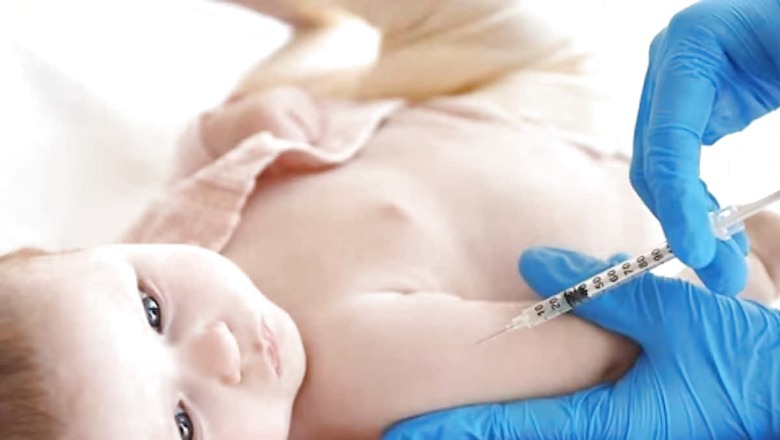
views
Vaccinations are crucial for the health and protection of newborns against several serious illnesses. Here is an overview of essential vaccinations for newborns, their significance, scheduling, and tips for aftercare.
Hepatitis B Vaccine:
Administer immediately within the first 24 hours after birth. The Hepatitis B vaccine guards against the Hepatitis B virus, which can cause severe liver issues, including chronic liver disease and liver cancer. Administered as a 0.5 ml injection into the thigh muscle, this vaccine may also be part of a combination vaccine covering multiple diseases. Consult your healthcare provider for more details on the hepatitis B vaccine.
BCG Vaccine:
This is given before hospital discharge. The Bacillus Calmette-Guerin (BCG) vaccine protects against tuberculosis (TB), a severe bacterial infection that primarily impacts the lungs. This vaccine is crucial as TB poses a higher risk to those unvaccinated and provides protection for about 15 to 20 years. Ensure your child receives the BCG vaccine before leaving the hospital by talking to your healthcare provider.
Oral Polio Vaccine (OPV):
Administer as soon as possible after birth. OPV combats poliomyelitis (polio), a virus that can lead to paralysis and death. The vaccine is given orally, typically at birth or within the first 15 days, ensuring ongoing protection against polio. Make sure the OPV is included in your child’s immunisation schedule by consulting with your doctor.
What To Do If You Miss A Vaccination?
If a vaccine is missed, contact your healthcare provider to discuss how to update your child’s vaccination schedule.
Post-Vaccination Care
Post-vaccination, some infants might experience minor side effects like soreness or a slight rash at the injection site, generally resolving quickly. Follow your healthcare provider’s guidance for post-vaccination care to ensure your child’s comfort and health.
Additional Parental Tips
– Verify the dates for each vaccination before visiting the clinic.
– Parents who work should try to schedule vaccinations on weekends to spend adequate time for aftercare.
– Dress your child in easily removable clothing for convenience during vaccination.
– Bringing a favourite toy can comfort your child post-vaccination.
– For older children, explaining the benefits of vaccinations might help alleviate fear of needles.




















Comments
0 comment